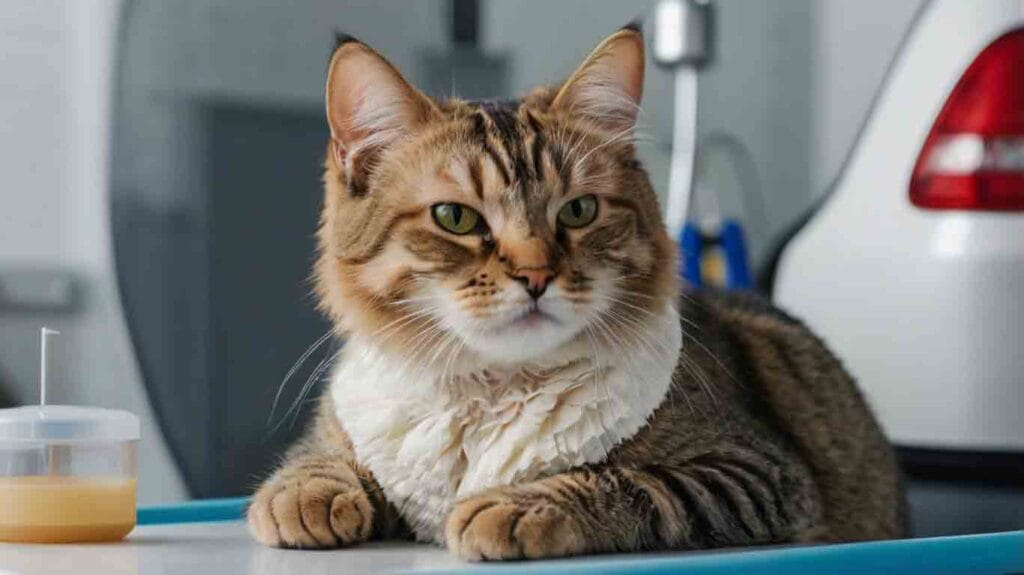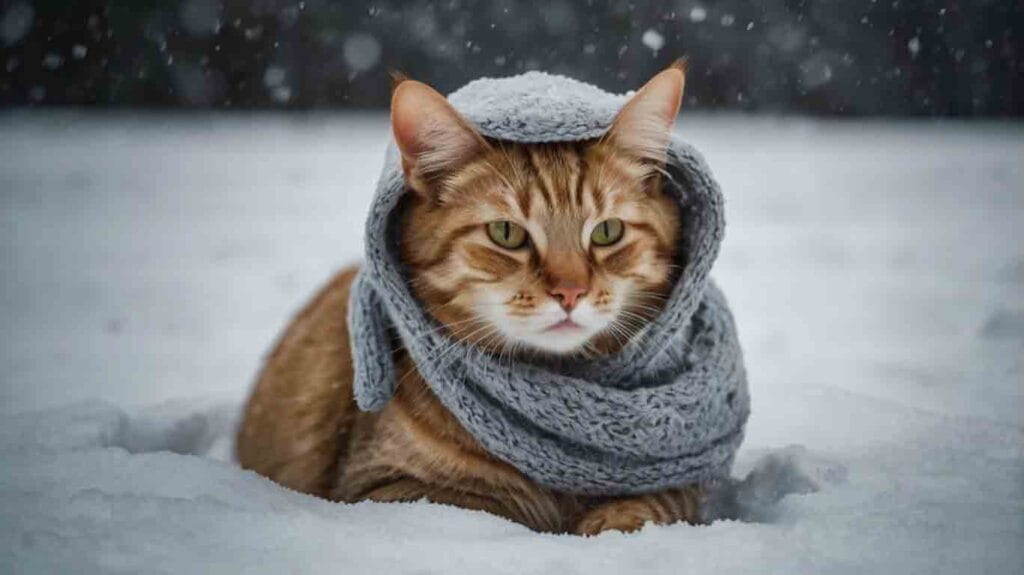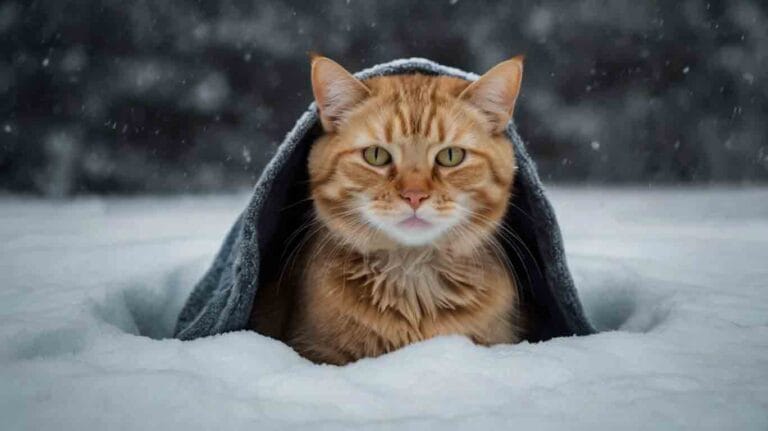My cats are often so independent and so beautiful. However, they are prone to other health problems like people.
Many pet owners also want to know whether cats can catch a cold.
Though it might sound strange, cat flu is a real topic of discussion for cat lovers.
To keep our whiskered friends in their best condition, it’s important to understand the complexities of feline colds. Let’s see, can cats get colds?
What is a Cat Cold?
Like the common cold in humans, the medical term for a cat cold is feline upper respiratory infection (URI). It is a constellation of symptoms affecting the respiratory tract, for the most part, from viral agents.
Symptoms to Watch For
Cats with colds may feel sneezy, have a runny nose, cough a little, and have watery eyes. Although usually mild, these symptoms should be seen to help prevent further problems.
Causes of Cat Colds
Viruses, including the feline herpesvirus and calicivirus, are the main culprits of feline colds. These are very contagious pests, able to spread very quickly, especially from cat to cat.
Environmental Factors
The risk of developing a cold is increased in an area already crowded, with poor ventilation, and under stress.
Because a cat’s immune system might be compromised, a cat is more susceptible to infections.
How Cat Colds Spread
Most cat colds are spread by direct contact with an infected cat or by being exposed to an infected object, including a food bowl or bed.
Role of Human Interaction
Though humans can’t catch a cold from a cat, you may still inadvertently help spread viruses by picking up several cats without sufficient hygiene measures.
Diagnosing a Cat Cold
Veterinary Examination
To diagnose a cat cold, it is vital for the cat to be thoroughly checked over by the vet.
The vet will look over the data as well as take a physical assessment to make certain it has been exactly what he believes.

Diagnostic Tests
In some cases, diagnostic tests like blood work or swabs may be needed to identify the specific virus causing your infection and see what type of treatment may be the best for you.
Treatment and Management
Home Care Strategies
With cat colds, most are mild and can be taken care of at home. Warm, stress free and lots of fluids will aid your recovery.
Veterinary Interventions
In some cases, a veterinary medical intervention might be required.
Sometimes, antibiotics will be prescribed to prevent secondary bacterial infections, and sometimes antiviral medications will be considered.
Also read: Why Does My Cat Eat Spider Webs? 5 Vet’s Insight & FAQs
Preventing Cat Colds
Vaccination and Immunization
Preventing is a cornerstone of vaccination. The risk of viral infections and the complications they can cause can all be greatly reduced by regular immunisations.
Environmental Control
Keeping a living space neat, well ventilated and free of things that stress out an animal can help to boost a cat’s immune system, lowering his chances of catching a cold.
Also read: What Can I Give My Cat for a Cold? 7 Vet-Approved Help, FAQs
When to See a Veterinarian
Recognizing Severe Symptoms
If a cat has symptoms that are very severe such as difficulty breathing, lethargy, or lack of appetite she needs to go to the vet immediately.
Getting to know the Potential Complications
Cat colds are important as untreated complications include developing pneumonia or chronic respiratory issues.
Also read: Is Silver Vine Safe for Cats? Vet-Approved 7 Tips & FAQs
Myths and Misconceptions
The main misconception about cat colds is that they are harmless and self limiting. Many cases are mild, but sometimes neglect can lead to an escalation.

Clarifying Mis understandings
There are so many myths to dispel, myths such as cats catching colds from humans. In addition, better care results from an understanding of the true nature of feline colds.
Wrap up on Can Cats Get Colds?
Yes, cats do get colds and it’s just as it sounds as a viral infection. It’s important to know the symptoms and go for early veterinary care and preventive measures for their health.
Being proactive and informed can help cat owners ensure their beloved pet lives its happiest and healthiest lives.
We take the responsibility as a feline pet owner seriously so that we can understand and do something about the health needs of our feline friends.
Also read: Will cats kill chickens? Instant VETs Answer: cats idea
FAQ: Can Cats Get Colds?
q1: Can Cats Get Colds Sneezing?
Ans: Although cats can get colds, the most likely cause of a cold is a viral infection, usually feline herpesvirus. Sneezing, runny nose, watery eyes, and coughing are the symptoms. Consult a vet for proper care.
q2: Can Cats Get Colds in the Winter?
Ans: In the winter, cats can actually catch colds. Cold temperatures, drafts, or exposure to sick animals. however, they may develop respiratory infections. Sneezing, coughing, nasal discharge, and lethargy are symptoms. Keep them warm and comfortable.
q3: Can Cats Get Colds from Cold Weather?
Ans: Colds are not caught from cold weather, and cats can get respiratory infections similar to colds. Cold climates can weaken their immune systems, so exposure to viruses such as the feline herpesvirus or calicivirus can lead to cold like symptoms.
q4: can indoor cats get colds?
Ans: Indoor cats can get colds. Respiratory infections, however, can be caught from environmental changes, stress, or exposure to other sick animals. Symptoms are sneezing, runny nose, and coughing.
q5: how do you treat a cat with a cold?
Ans: If your cat has a cold, you can do things like keeping the cat warm and hydrating it, giving them a humidifier to help ease their breathing, and going to a vet for advice. A secondary infection can be treated with antibiotics.
